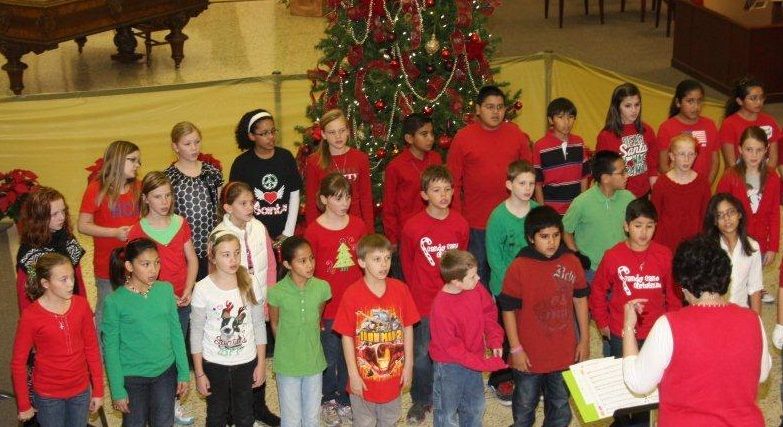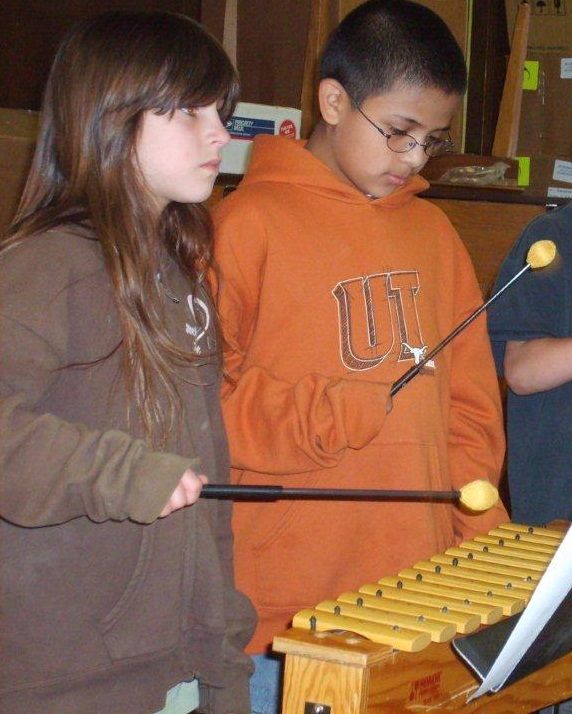Elementary Music

Elementary students in the Abilene Independent School District are taught by elementary music specialists, many of whom are trained in the Kodály methodology. This approach to music education includes a sequential organization of concepts and skills to be developed through hearing, singing, deriving, writing, reading and creating music. The Kodály method of music education, further explained below, is used in schools around the world.
Students in AISD elementary music classes build a repertoire of songs, rhymes, singing games and dances from a variety of cultures. Goals of the music curriculum include understanding musical concepts and achieving mastery of musical skills. Students perform, analyze and listen to great art music. They create, improvise and compose original compositions.
In addition to classroom instruction, several enrichment opportunities are provided. Third-, fourth- and fifth-grade students in AISD experience music outside the classroom by attending performances of the Abilene Philharmonic. Fourth-grade students attend the Abilene Ballet Theatre performance of The Nutcracker each November. AISD is also a strong supporter of the Young Audiences program, sponsoring professional performances for all grade levels in each of the elementary schools.
Kodály Concept
The Kodály approach to music education is based on the educational philosophy of the Hungarian composer and music educator, Zoltán Kodály. The sequencing of concepts is structured to follow child-developmental patterns, beginning with the simplest two- and three-note tunes and simple rhythms of early childhood and adding to them only as the child’s readiness is demonstrated. Musical skills develop during singing and in the performance of singing games connected with movement.
The principle objectives of the Kodály approach are:
- To develop the innate musicality of each and every child
- To lead children to become musically literate in the fullest sense of the term
- To make children independent music makers
- To develop a love and appreciation for folk songs and music of the master composers
“Teach music and singing at school in such a way that it is not a torture, but a joy for the pupil; instill a thirst for finer music in him, a thirst which will last for a lifetime…Often a single experience will open the young soul to music for a whole lifetime. This experience cannot be left to chance; it is the duty of the school to provide it.” (Zoltán Kodály)

